
Where do tarantulas live? Whether you have a pet tarantula and would like to know where it originates from, whether you’d like to know if you’re likely to run into a wild tarantula, or maybe you’re just curious, we’ve created a short article to help answer exactly where do tarantulas live?
Unless you’re keeping one as a pet, in which case they’re found globally, tarantulas can be found in several continents, although prefer warmer climates. They also prefer moderate to high humidity – very few of them reside in dry desert areas.
That answer is somewhat vague, it virtually covers the whole of the southern half of the hemisphere so let’s see which tarantulas come from which region. There are currently 50’479 species of tarantula (at time of writing) so this list is far from comprehensive.
Please use the search function at the top of this page if you want to find out where your tarantula is from but don’t wish to read through all the genera.
United States
In the United States, wild tarantulas are only found in the Southwest. They are more common in Mexico and Central and South America.
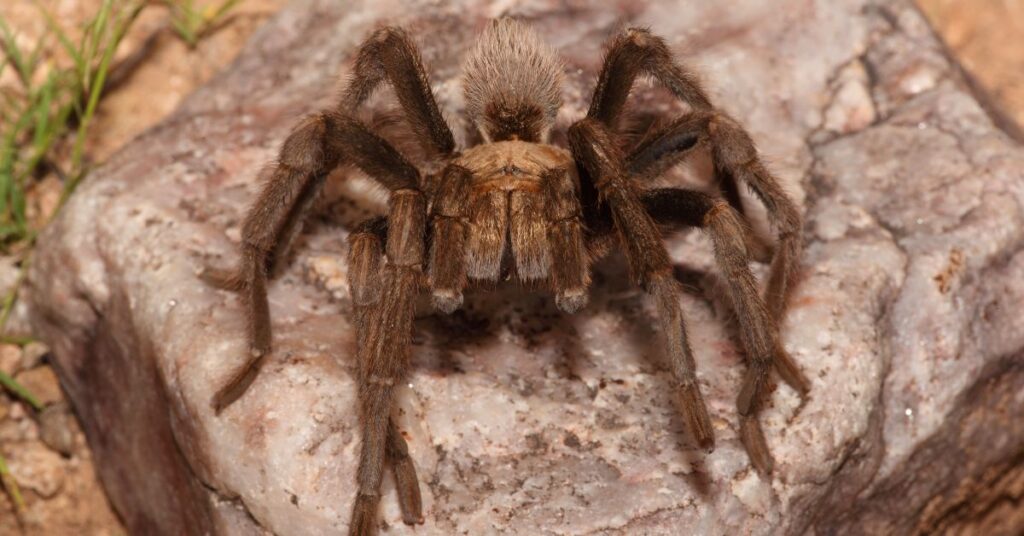
Tarantulas live in twelve U.S. states, including:
Arizona (Aphonopelma chalcodes) – read our article on these critters here.
Arkansas (A.hentzi )
California (A.eutylenum)
Colorado (A.coloradanum A.echinum A.hentzi A.vogelae A.marxi)
Kansas (A.hentzi)
Louisiana (A.hentzi)
Missouri (A.hentzi)
New Mexico (A.hentzi, A.gabeli, A.marxi, A.parvum, A.piloncillo, A.vorhiesi),
Nevada (A.eutylenum, A.chalcodes)
Oklahoma (A.hentzi)
Texas (A.hentzi, A.anax, A.armada, A.gabeli, A.moderatum, A.vorhiesi)
Utah (A.Iodius, A.marxi, A.prenticei)
As you can see, all tarantulas mentioned so far are that of the of the Aphonopelma genus.
Every year there is a migration of these tarantulas across the states. You can read our article here.
Asia
Asia is home to some beastly Old World tarantulas, India and Sri Lanka containing the majority. The following all belong to the Poecilotheria genus:

India
Salen Ornamental – P.formosa
Peacock Tarantula – P.metallica
Bengal Spotted Ornamental – P.miranda
Indian Ornamental – P.regalis
Red Slate Ornamental – P.rufilata
Mysore Ornamental – P.striata
Wessel’s Tiger Ornamental – P.tigrinawesseli
Sri Lanka
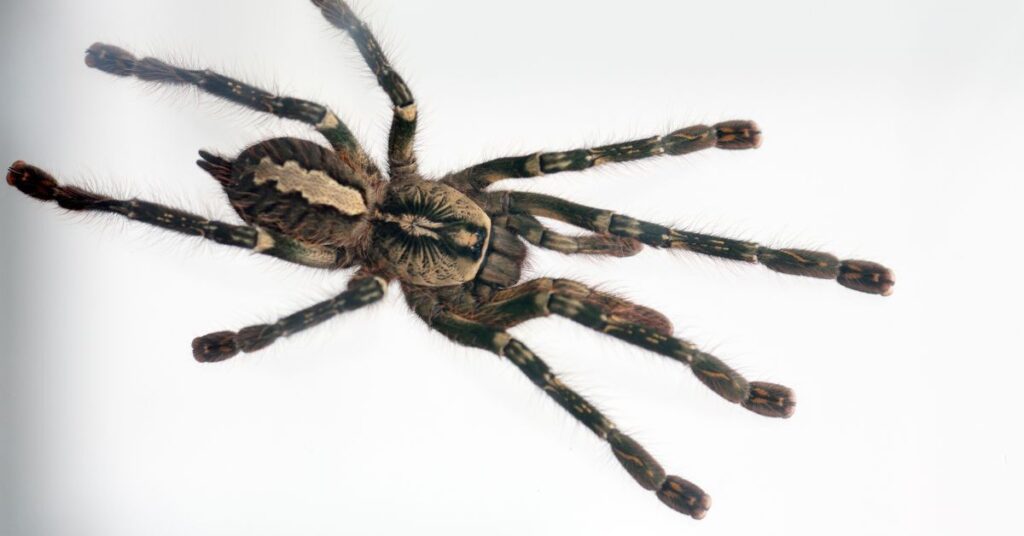
Sri Lankan Ornamental – P.fasciata
Fringed Ornamental – P.ornata
Mankulam Pink Banded Ornamental – P.rajaei Nanayakkara
Yellow Backed Ornamental – P.smithi
Ivory Ornamental – P. subfusca
Both countries
Rameshwaram Ornamental – Poecilotheria hanumavilasumica
Magam Ornamental – Poecilotheria vittata
Africa
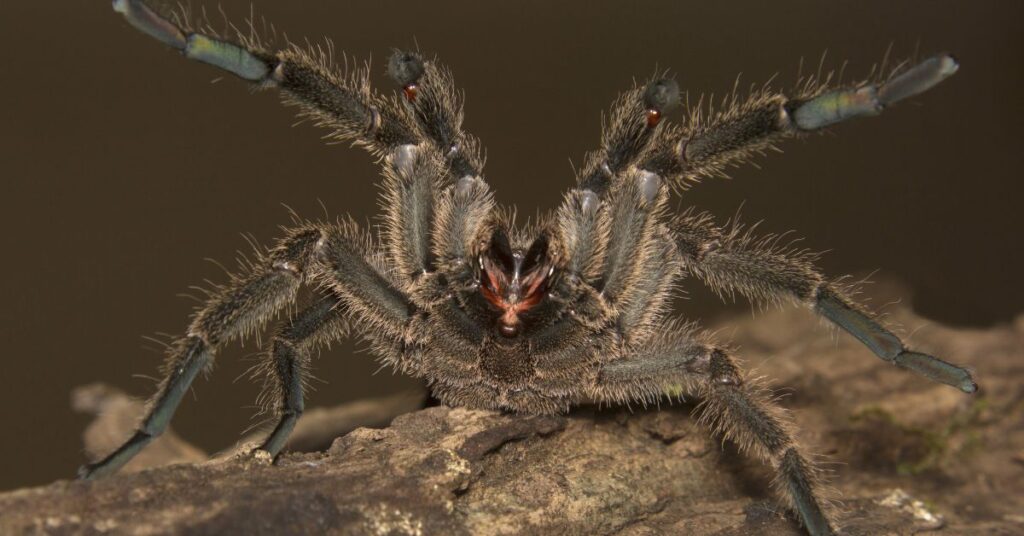
Africa is home to many variants of tarantula. South Africa has 8 genera and 44 species alone. These include the infamous Orange Baboon, the Starburst Baboon, the King Baboon, and the Ornamental Baboon.
As they are Old World, all of these spiders are extremely defensive and are known in the hobby to be very aggressive.
Mexico
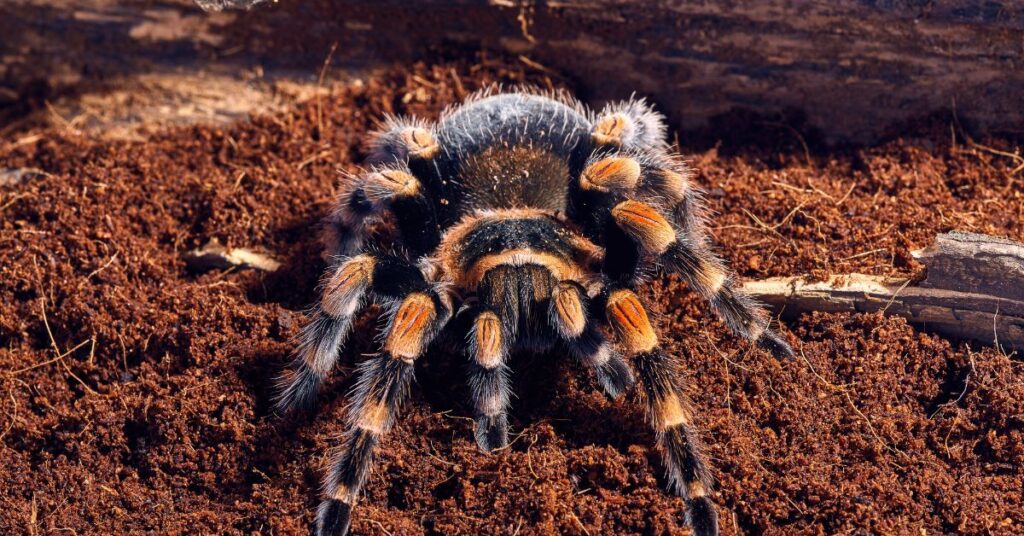
Ahh, Mexican tarantulas. There are 24 Aphonopelma species, 27 Hemirrhagus species, 14 Brachypelma species and many more.
In 2020, the Brachypelma genus was split with a group of species (the “red rump” tarantulas) being moved to a new genus, Tliltocatl.
Interestingly, Brachypelma tarantulas are the only tarantulas worldwide that are CITES listed animals, basically meaning there are exportation quotas and restrictions for these species.
As you can see, most species of tarantula living in Mexico, just like the United States, are of the genus Aphonopelma.
There are 66 known species in all, making Mexico the country with the second most known tarantula species in the world.
South America
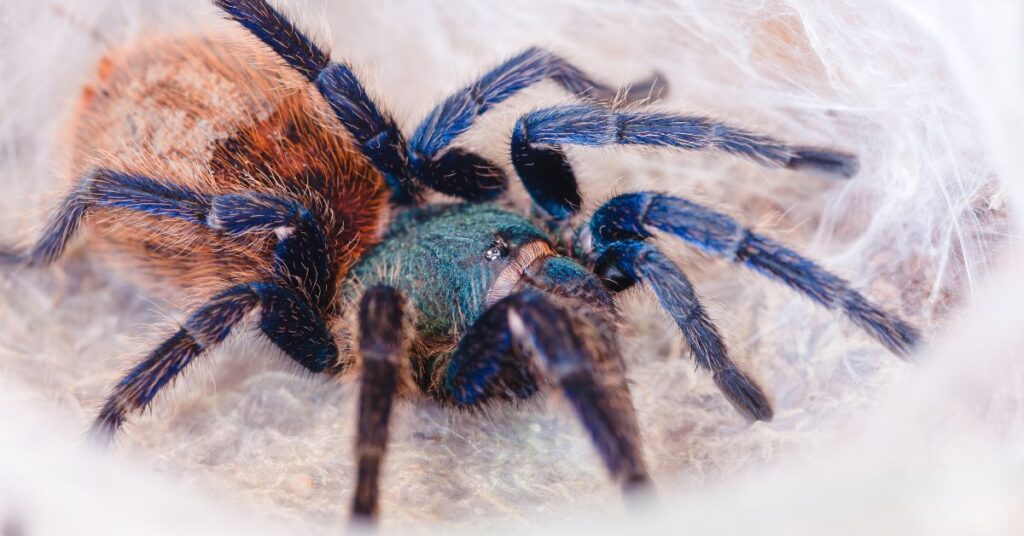
Tarantulas live in every South American country. There you will find everything from dwarfs to giants.
This is where many pet tarantulas originate, and as there are literally hundreds, it would be impossible to list them all.
The Greenbottle Blue, Rose hair, Pinktoe, Skeleton, and White Knees are a few examples. South America is also home to the Goliath Bird Eater.
All South American tarantulas are New World, therefore making them more docile that their Old World counterparts.
Europe
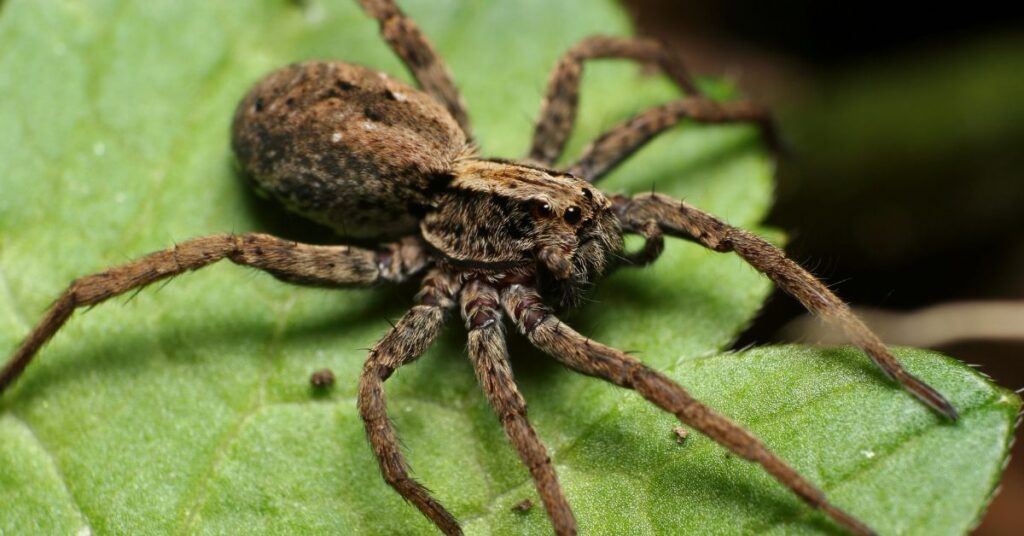
There are very few tarantulas in Europe, mainly because it’s too cold here (!!!).
Lycosa tarantula spiders, now better known as tarantula wolf spiders, were the first spiders to be referred to as ‘tarantulas’. They come only from southern Europe and are normally no more than 4cm in length.
The only tarantula-related species found in Britain is the rare purse-web spider, Alypus affinis. It is mainly found in southern England, but also the Netherlands, Germany, as far north as southern Sweden and as far south as North Africa.
South East Asia
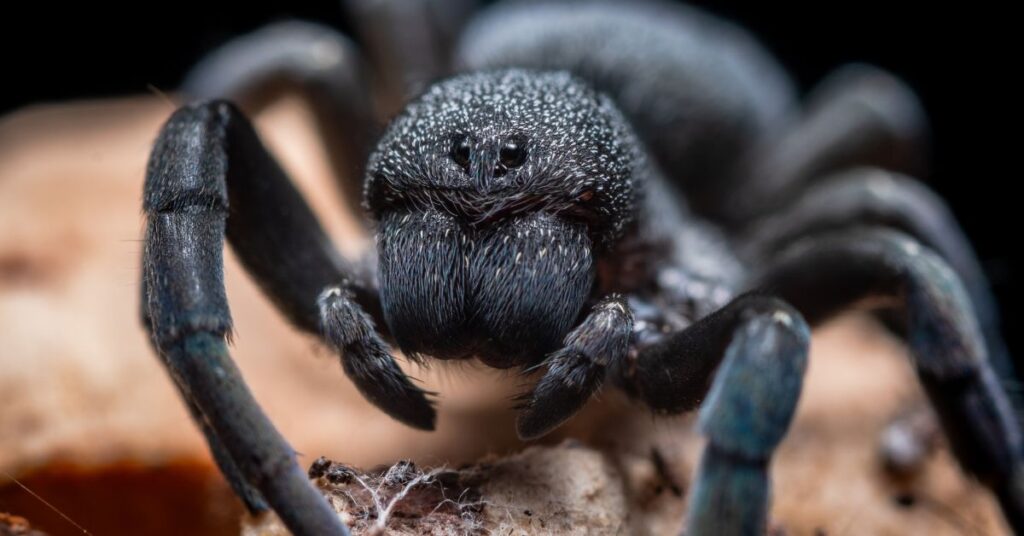
The Cyriopagopus genus is found from Myanmar to the Philippines. As of March 2017, the genus includes species formerly placed in Haplopelma.
Thailand Zebra Leg – C. albostriatus (Myanmar, Thailand, Cambodia)
Kalimantan – C.doriae (Malaysia Borneo)
Chinese Bird Spider – C.hainanus (China)
Cobalt Blue – C.lividus (Thailand)
Vietnam Tiger – Cyriopagopus longipes (Thailand, Laos, Cambodia)
Thailand Black – Cyriopagopus minax (Myanmar, Thailand)
Asian Chevron – C.paganus (Myanmar)
Chinese Giant Gold – C.schmidti (China, Vietnam)
Vietnamese Tiger – C.vonwirthi (Southeast Asia)
We know this list is far from complete but there are just too many species of tarantula to include them all.
Hopefully, we’ve at least given you an idea of roughly what genus of tarantula is found where and you have been able to identify where your little critter’s origins are.
Until next time, stay spidery!
